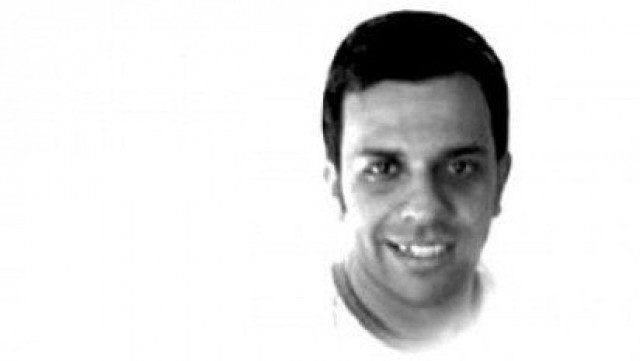Society and comedy

It carried on the finest traditions of Pakistani humour, down from “Fifty Fifty” and “Such Gup”, of satire and sharp wit, of mimicry and of swift word play. Central to the whole thing was the electric repartee between the anchor Anwar Maqsood, the old white-haired smoothie who you might imagine lip-syncing Barry White on his spare afternoons, and Moin Akhtar, the funniest man in the country. Maqsood played as straight as a jalebi, mistimed pauses, breaking a free flow of poetry and prose and comment, perennially setting it up. That famously unperturbed mien never dropped. But most importantly he allowed Akhtar to go through the full range of his comedic skill. Akhtar was as originally conceived, spraying accents, voices, mannerisms, down to the littlest tics and grunts in a range of characters that hinted that he could play every kind of Pakistani that inhabits the land.
So he became the betel-nut chewing seth permanently dangling on the very edge of an expletive-ridden tirade, the squeaky-voiced sports minister whose smiling buffoonery so accurately forecasts the unfortunate arrival onto our landscape of Jamshed Dasti and the barely coherent, slightly pervy old man of literature. What could he not do?
And then suddenly it was panned, because someone in power had taken offence to it. In the process its greatness was sealed. One of the things we haven’t ever gotten right is the well-timed exit: always the affair, always lingers on far too long. Here there was no choice. And the only question that remained wasn’t how it was taken off air, but how on earth was it allowed on in the first place? The thing is I remember it being consistently funnier in my mind, in my head than I found it in actuality while watching it again. But there remains an undeniable timelessness to it, as there is to “Fifty Fifty,” though equally it should be dispiriting because of how much relevance they still have. But because these shows laughed at our condition, not at our personalities they retain substance and currency. The digs are at deteriorating public institutions, at our problem-solving methods, at the permanent frictions between ethnicities, in the bulldozing commercialisation of everything and everyone.
There is great mileage in lampooning individuals as “Hum Sab Umeed Say Hain” or the “4-Man Show” has discovered and often it can be genuinely funny. But they are, as a briefly celebrated band once had it, merely scratches in the sand, not etchings in stone. “Studio Ponay Teen” came soon after but that was a sequel, encumbered with the trappings of such ventures. Years later came “Loose Talk” and that had its moments. But more permissive times robbed it of its bite: if nobody really cares that you are deriving great comic reward at their expense, it doesn’t matter as much. Great tragedy begets great comedy and accordingly Pakistan has a rich comic tradition. It has to — for the day we stop laughing at ourselves might be the end of us.
As a parting observation, scanning the show’s audience shots, there appeared not a single woman (with a veil or head-covering), veiled or covering her hair and not a single beard of belief, only of fashion.
Published in The Express Tribune, June 26th, 2010.














COMMENTS
Comments are moderated and generally will be posted if they are on-topic and not abusive.
For more information, please see our Comments FAQ